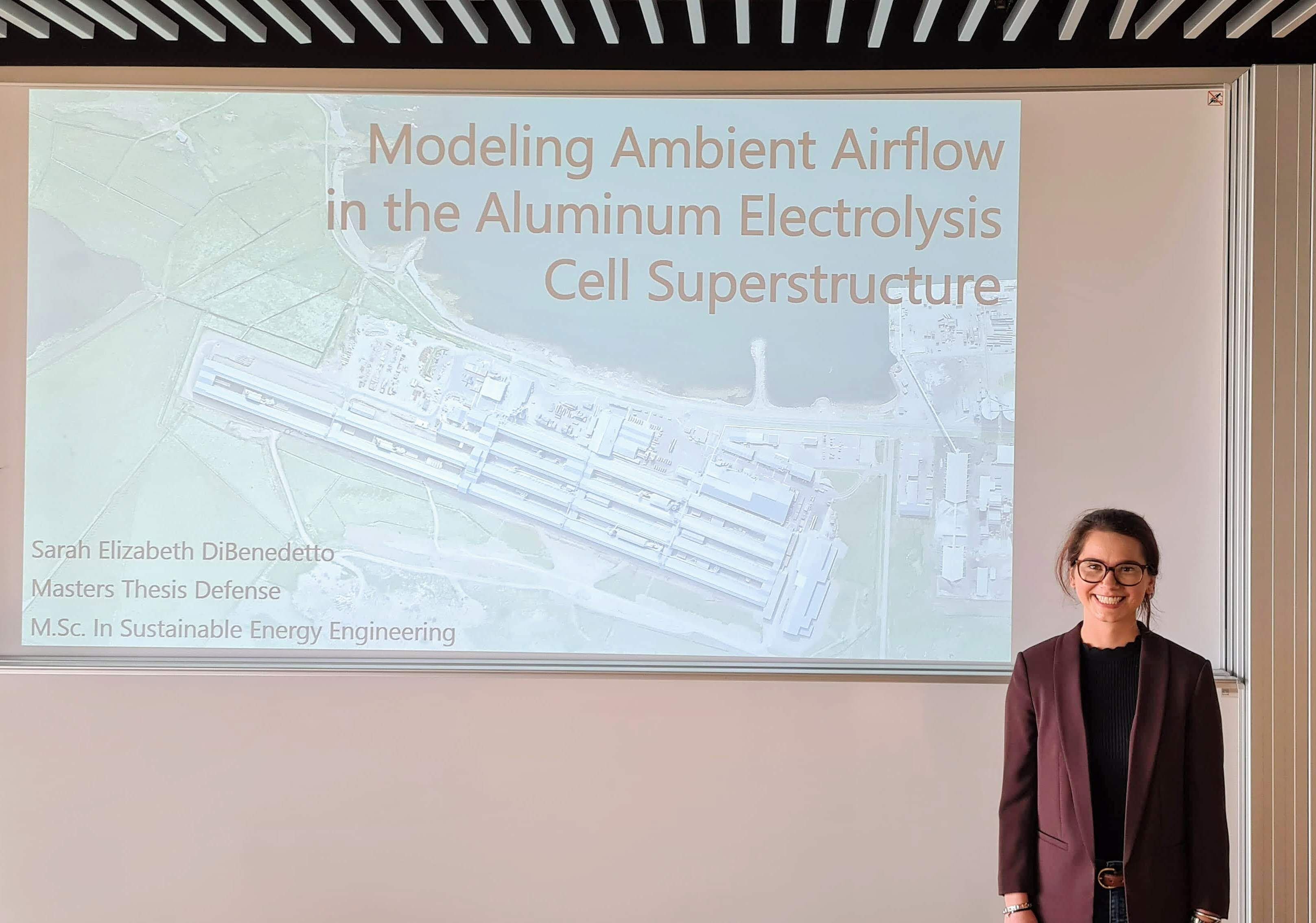MSc Thesis: Modeling the Ambient Airflow in an Aluminum Electrolysis Cell Superstructure
REYKJAVIK, June 2 - MSc in Sustainable Energy Engineering candidate, Sarah Elizabeth DiBenedetto, successfully defended her master's thesis where she modeled the ambient airflow in an aluminum electrolysis cell superstructure. Sarah's work was supervised by Dr. Guðrún Arnbjörg Sævarsdóttir from Reykjavik University, Dr. María Sigríður Guðjónsdóttir from Reykjavik University, and Dr. Yonatan A. Tesfahunegn from Reykjavik University. With examination by Einar Friðgeir Björnsson from Norðurál .
 Sarah's project concerns the development of a rudimentary CFD model for the ambient air flow inside the aluminum electrolysis cells at the Icelandic aluminum smelter Norðurál. Her work supports ongoing research efforts that are currently being made in the Icelandic aluminum industry to dramatically decrease the associated CO2 emissions and eventually become carbon neutral.
Sarah's project concerns the development of a rudimentary CFD model for the ambient air flow inside the aluminum electrolysis cells at the Icelandic aluminum smelter Norðurál. Her work supports ongoing research efforts that are currently being made in the Icelandic aluminum industry to dramatically decrease the associated CO2 emissions and eventually become carbon neutral.
Sarah highlighted that one suggested method for emissions reduction is the utilization of geologic carbon capture and sequestration in the basalt rock which can be throughout Iceland. In order to operate carbon capture at the aluminum smelter, the concentration of carbon dioxide in the cell effluents needs to be increased from the current value 1 vol% to 4 vol%.
To achieve the increase in carbon dioxide concentration, Sarah explained that modifications of the cell superstructure and adjustments of the draft rate of ambient air through the cell may be performed. The electrochemical production of aluminum operates at very high temperatures and the heat balance of the cell must be maintained.
Sarah emphasized that CFD modeling of the top cell is a crucial component in understanding the heat balance of the cell and the effects of operational changes on the heat balance. Over half of the heat loss in the cell occurs through the superstructure and the majority of these losses are through the exhaust gas.
The model presented Sarah used in this study was used to establish the effect of cell draft rate on the pressure drop inside the cell and the exhaust gas temperature. The results from her model show that utilizing a pressure outlet is satisfactory for controlling the simulated cell draft rate and mass flow rate through the cell.
Congratulations Sarah for an excellent thesis defense!
